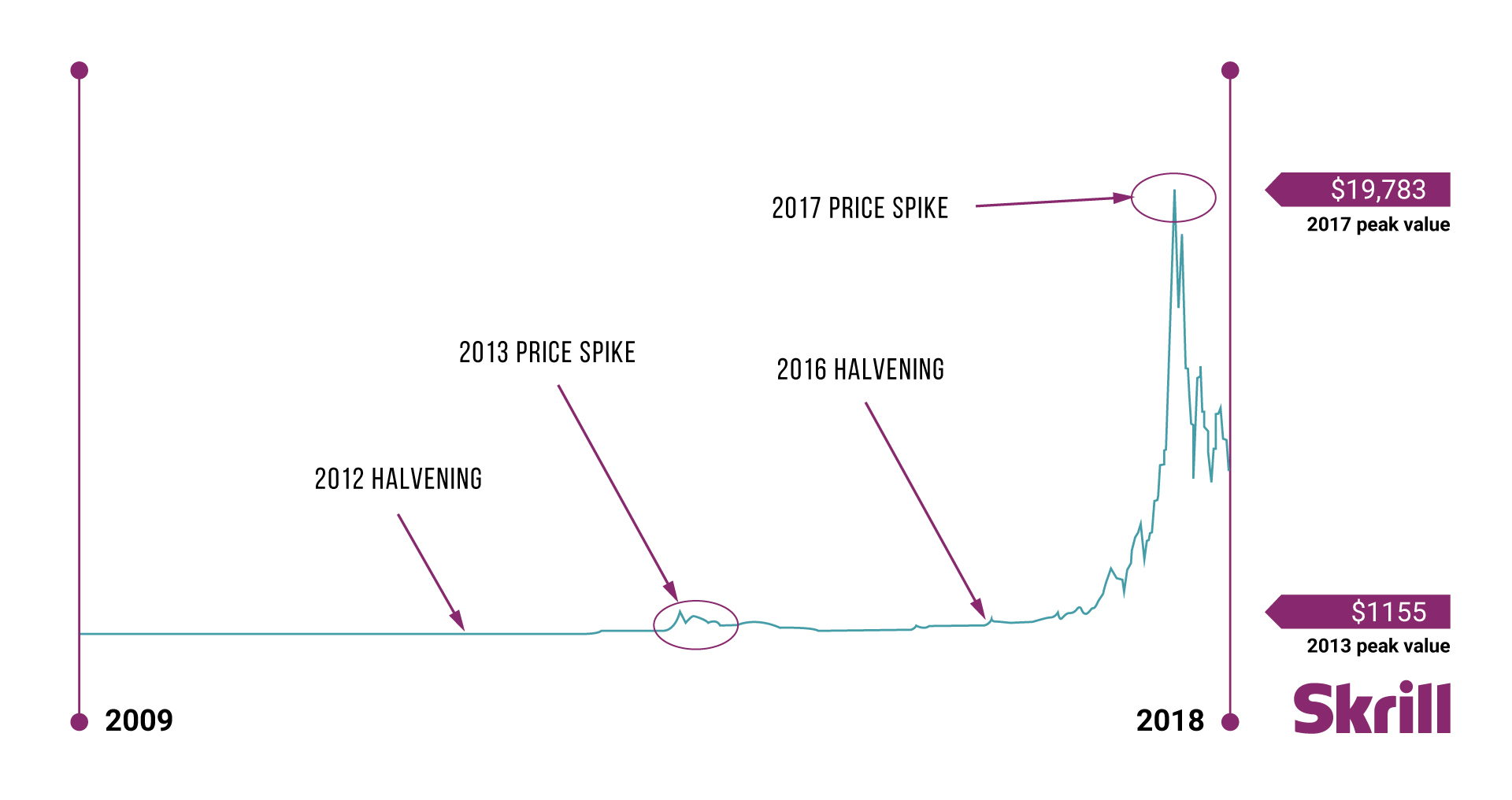Don’t invest unless you’re prepared to lose all the money you invest. This is a high-risk investment and you should not expect to be protected if something goes wrong. Take two minutes to learn more.
This article is not intended to be financial, investment or trading advice. This article is for information and solely for education purposes. It does not protect against any financial loss, risk or fraud.
Written by Lydia Pallot
What is a scam?
Given the level of hype surrounding the blockchain industry, more specifically the cryptocurrency market, understanding the most commons scams and how best to protect your crypto assets is key.
Fraud and scams can affect us all. In fact, fraud has now overtaken theft as the most common type of crime.
At Skrill, protecting your account and keeping your assets safe is our priority, which is why we want to help you understand the variety of different scams out there. Here, we break down the top types of scams and what you can do to keep your crypto assets safe.
Investment scams
These scams push you to invest your money by promising high returns on your investment. Often, they will falsely claim that there are no financial risks associated with the investment.
But remember, without exception all kinds of investment carry a risk. So, if you are considering sending your crypto to a third party, look for publicly verified reviews or other credible sources confirming that the third party is legitimate.
Money mules
A money mule is a person who transfers stolen funds or digital assets on behalf of others. In the context of fraud, many money mules take part in crime unknowingly.
For example, criminals laundering money may ask you to accept funds into your bank account and then transfer them to another account. Being involved in this process is a criminal offence, and the mule is held accountable in a court of law.
The criminals running these schemes can approach people both in person and online, and their approach can take various forms. One example is as a job advertisement, where the criminal asks for your bank details so they can send you funds or gets you to apply for bank cards in your name.
How to keep yourself protected:
-
Never allow others to use your bank account to send or receive funds.
-
Never open a bank account in your name for another individual.
-
Keep all your passwords, PINs and any security passcodes private.
Source: https://www.moneymules.co.uk/
IP infringement:
Let’s first break down the definitions of ‘IP’ and ‘infringement’.
IP stands for ‘Intellectual Property’. In legal terms, ‘infringement’ is an act of breaking a law. IP rights are infringed when a product, creation, or invention protected by IP laws are exploited, copied or used without authorization from the legal owner.
In the crypto space, this has come to light in relation to NFTs (Non-Fungible Tokens) because of the recent case of Hermès v MetaBirkins. The lawsuit was against artist Mason Rothschild and the release of ‘MetaBirkins’ NFTs. The case found Rothschild liable of trademark infringement, brand dilution and cybersquatting. As a result, Hermès won its case against an NFT project for using its IP.
So how can you make sure you are purchasing NFTs legitimately? When purchasing NFTs, always check whether the collections have misused trademarks or any IP from other brands. If you’re unsure of how to do this, NFT forger detection tools can help, such as bitsCrunch’s NFT Forgery Detection.
Source: Gov.UK
Romance scams
As showcased in the Netflix documentary ‘The Tinder Swindler’, some fraudsters will create a false online identity to gain a victim’s affection. The objective: to use the relationship to manipulate their victim into sending money. In some cases, the victims of romance scams are also roped into becoming money mules.
If you are communicating with an unknown person online, take the following steps to protect yourself:
-
If you have never met the individual in person or they are reluctant to meet face-to-face, this could be a sign they have adopted a false identity.
-
Avoid transferring money or crypto assets to someone you have never met in person.
-
When communicating online, be cautious when sharing personal information.
-
As always, never allow someone to use your bank account or share any details associated with your bank.
Government scams
In some cases, scammers will impersonate government agencies, playing on the fact you will recognize the organization. Typically, they will ask you to make a payment to avoid your account with them being frozen.
Remember that government agencies almost never contact you directly by phone, text or email. Plus, you can easily check on the official government agency site and contact them directly if you have any concerns.
Business impersonation
Scammers can impersonate businesses, claiming your account has been hacked and your funds are at risk. Avoid giving away any remote access to your devices, or any information about your password and security details. If you are worried, contact the company via their official website to check that the message is from them.
Try crypto with Skrill today
- Buy and sell over 40 different cryptocurrencies
- Set conditional orders to automate your trades
- Earn points and be rewarded with Skrill's loyalty programme, Knect
Cryptocurrencies are unregulated in the UK. Capital Gains Tax or other taxes may apply. The value of investments is variable and can go down as well as up.





